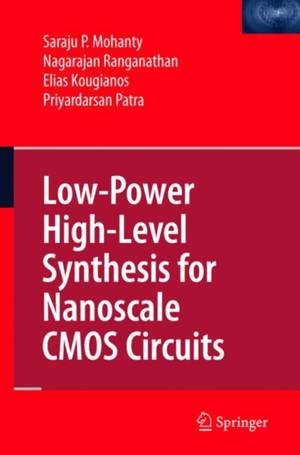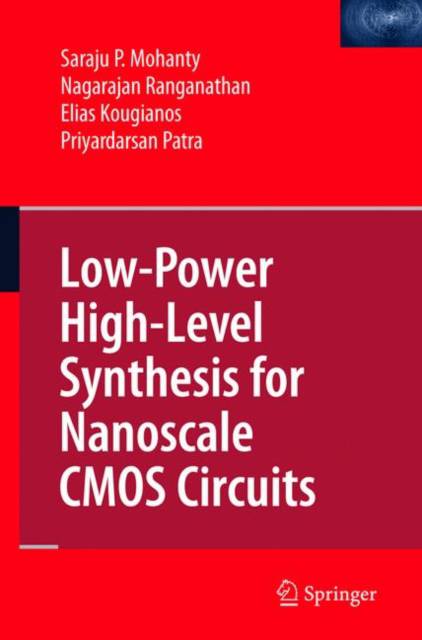
- Afhalen na 1 uur in een winkel met voorraad
- Gratis thuislevering in België
- Ruim aanbod met 7 miljoen producten
- Afhalen na 1 uur in een winkel met voorraad
- Gratis thuislevering in België
- Ruim aanbod met 7 miljoen producten
Low-Power High-Level Synthesis for Nanoscale CMOS Circuits
Saraju P Mohanty, Nagarajan Ranganathan, Elias Kougianos, Priyardarsan PatraOmschrijving
Low-Power High-Level Synthesis for Nanoscale CMOS Circuits
addresses the need for analysis, characterization, estimation, and optimization of the various forms of power dissipation in the presence of process variations of nano-CMOS technologies. The authors show very large-scale integration (VLSI) researchers and engineers how to minimize the different types of power consumption of digital circuits. The material deals primarily with high-level (architectural or behavioral) energy dissipation because the behavioral level is not as highly abstracted as the system level nor is it as complex as the gate/transistor level. At the behavioral level there is a balanced degree of freedom to explore power reduction mechanisms, the power reduction opportunities are greater, and it can cost-effectively help in investigating lower power design alternatives prior to actual circuit layout or silicon implementation.The book is a self-contained low-power, high-level synthesis text for Nanoscale VLSI design engineers and researchers. Each chapter has simple relevant examples for a better grasp of the principles presented. Several algorithms are given to provide a better understanding of the underlying concepts. The initial chapters deal with the basics of high-level synthesis, power dissipation mechanisms, and power estimation. In subsequent parts of the text, a detailed discussion of methodologies for the reduction of different types of power is presented including:
- Power Reduction Fundamentals
- Energy or Average Power Reduction
- Peak Power Reduction
- Transient Power Reduction
- Leakage Power Reduction
Low-Power High-Level Synthesis for Nanoscale CMOS Circuits provides a valuable resource for the design of low-power CMOS circuits.
Specificaties
Betrokkenen
- Auteur(s):
- Uitgeverij:
Inhoud
- Aantal bladzijden:
- 302
- Taal:
- Engels
Eigenschappen
- Productcode (EAN):
- 9780387764733
- Verschijningsdatum:
- 7/07/2008
- Uitvoering:
- Hardcover
- Formaat:
- Genaaid
- Afmetingen:
- 160 mm x 236 mm
- Gewicht:
- 589 g

Alleen bij Standaard Boekhandel
Beoordelingen
We publiceren alleen reviews die voldoen aan de voorwaarden voor reviews. Bekijk onze voorwaarden voor reviews.












